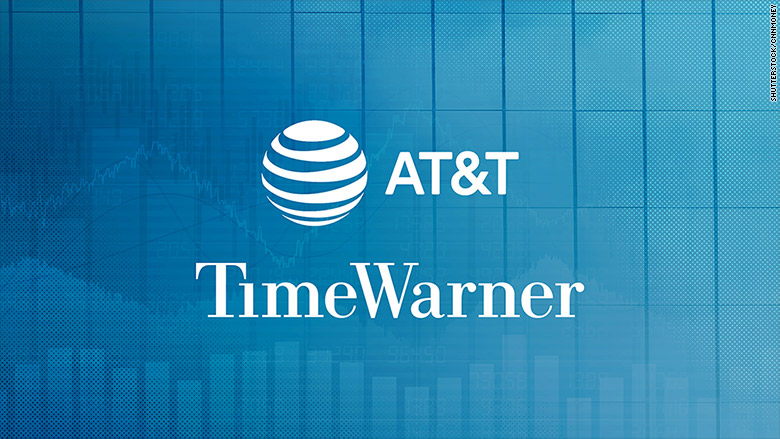
The Justice Department plans to argue that the judge who approved AT&T's acquisition of Time Warner committed "fundamental errors of economic logic and reasoning" when he ruled against the government's attempt to block the deal, according to an appellant brief filed by the government on Monday.
Judge Richard Leon, the government's attorneys wrote in the brief, "discarded the economics of bargaining." They argued that Leon, who approved the merger in June, both "misunderstood" and "failed to apply the foundational principle of corporate-wide profit maximization" when he found that the government failed to prove that the merger would substantially harm competition."
The Justice Department argued in Monday's brief that Leon "substantially constrained the government's presentation of evidence showing that the merged entity would have greater bargaining leverage." The government wrote that the evidence excluded included AT&T's own analyses of the potential competitive effects of vertical mergers, that is, ones between a distributor and a supplier, and public FCC filings made by AT&T and its subsidiary DirecTV "explaining the potential competitive harm from vertical integration." The Justice Department also took issue with Leon "strictly limiting" expert economic testimony.
"These errors colored the court's view of the facts, leading to a decision that is clearly erroneous in light of the evidence presented at trial," the Justice Department wrote.
The Justice Department has argued that by owning Time Warner, which includes HBO and TBS, AT&T would have "both the incentive and the ability to raise its rivals' costs and stifle growth of innovative, next-generation entrants that offer attractive alternatives to AT&T/DirecTV's legacy pay-TV model—all to the detriment of American consumers."
The evidence presented at trial, the Justice Department says, shows that AT&T would have greater bargaining leverage because the company could threaten to "black out" Time Warner content -- pulling it from rival distributors during negotiations -- because customers would drop their current providers and switch to AT&T services like DirecTV in order to watch its content. AT&T would also get higher prices out of its competitors as a result, the Justice Department alleged.
AT&T and Time Warner argued during the trial that they have no incentive to trigger a "black out" because they rely on subscriber fees and advertisements to make money, and dropping a distributor would cause their networks too much financial harm. They also claimed that they need the merger to compete with the likes of Google and Facebook, and to bring cost savings and new innovations to their customers.
"Appeals aren't 'do-overs.' After a long trial, Judge Leon weighed the evidence and rendered a comprehensive 172-page decision that systematically exposed each of the many holes in the government's case," said David McAtee, AT&T's general counsel. "There is nothing in DOJ's brief today that should disturb that decision."
Related: Why the AT&T-Time Warner trial matters
Days after Leon approved the deal in June, AT&T committed to hold the Turner Networks, which includes CNN, TNT, TBS and HLN among others, separate from AT&T until February 28, 2019 in case of a successful appeal by the Justice Department.
The appeal is on a "fast track" timeline in order to reach a conclusion before that February deadline. Final briefs from both sides are due in October, when oral arguments in front of a three judge panel are expected to begin.
The stakes are high for the Justice Department. Whichever way the appeals court rules will set a precedent for other cases and "shape the future of the media and telecommunications industries for years to come," the Justice Department wrote.
The side that loses in the appeals process would have the option to ask the Supreme Court to take up the case.


